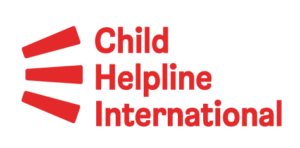Last week I travelled to Warsaw where, together with our partners from UNICEF ECARO and the UNICEF Emergency Response Office in Poland, we held a three-day workshop between 8-10 February for child helplines and frontline workers responding to children and young people affected by the war in Ukraine.
We were joined by 28 participants, who represented six different helplines: Fundacja Dajemy Dzieciom Siłę’s 116111, our Polish child helpline member; the Ministry for Justice’s Victims Assistance Helpline; Nasz Wybór; the 112 helpline; the National Ombudsman for Children’s helpline; and the National Ombudsman for Human Rights.
Workshops on the first day of the event enabled participants to increase their knowledge about two overlapping phenomena in relation to the ongoing war in Ukraine. Dr Alicia Heys led on trafficking in human beings, while I talked about sexual and gender-based violence. On the second day, child abuse physician Dr Jordan Greenbaum and Assistant Professor Dr Maggie Brennan, helped counsellors to develop their skills in addressing mental health and psychosocial support (MHPSS) from a trauma-informed perspective, as well as a toolkit for counsellors’ wellbeing management.
Milena Harizanova, Chief of Child Protection at UNICEF’s Emergency Response Office, opened the final day of the event, emphasising the role that child helplines play in child protection systems as they are typically the first point of contact with children in need. The day progressed with a high-level discussion panel led by Anastasiia Nurzhynska, Chief of Social and Behavioural Change at UNICEF Emergency Response Office in Poland. Panelists and participants discussed several key issues relating to the Polish child protection response to the war in Ukraine, including stigma of mental health care and the role of technology in creating new risks for children in situations of conflict. Dr Tomasz Sienow, head of Polands’ Rule of Law Institute, delivered a particularly critical intervention concerning the legal status of unaccompanied and separated children, both from Ukraine as well as from other crises, including those in Belarus, Afghanistan and Syria.
All images © Michał Stańczyk
The final workshop presented an opportunity for counsellors to discuss current and emerging issues for their respective organisations, based on the knowledge they had acquired over the past three days. Two major themes that emerged from the discussion were the importance of communication and collaboration as part of an effective emergency response.
The first of these proved particularly pertinent for the counsellors, and they talked about the challenges they faced in building up a trust in Polish services among Ukrainian children. They also discussed how they were combatting mental health stigma and effectively raising awareness of the presence of their helplines’ services, making sure that they were not overwhelming Ukrainian children with information.
The participants further emphasised that their collaboration with one another, both between helplines with similar mandates, state organs involved in child protection as well as relevant NGOs. Their collaboration made it possible to streamline services for children and thus avoid delays, allowing children to exercise the full potential of their rights.
Speaking on behalf of Child Helpline International and our partners in UNICEF ECARO and UNICEF’s Emergency Response Office in Poland, I want to thank all of our fantastic participants for allowing us to spend these three days together, discussing difficult, complex issues with candidness, professionalism and dedication. We are so thankful for the work that you are doing during this Ukraine crisis response!
Eva Veldhuizen-Ochodničanová
Forensic Psychologist,
CP/GBV Expert, Ukraine Crisis Response Team


